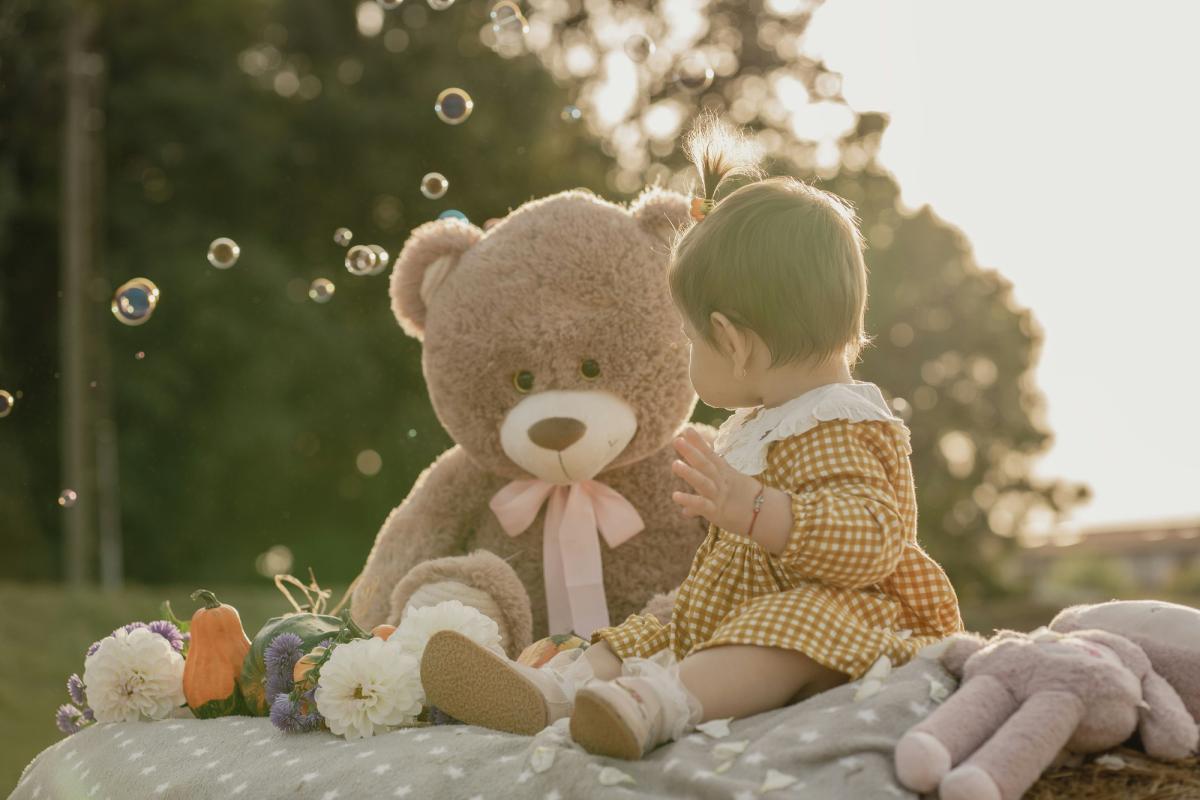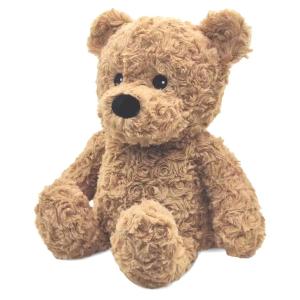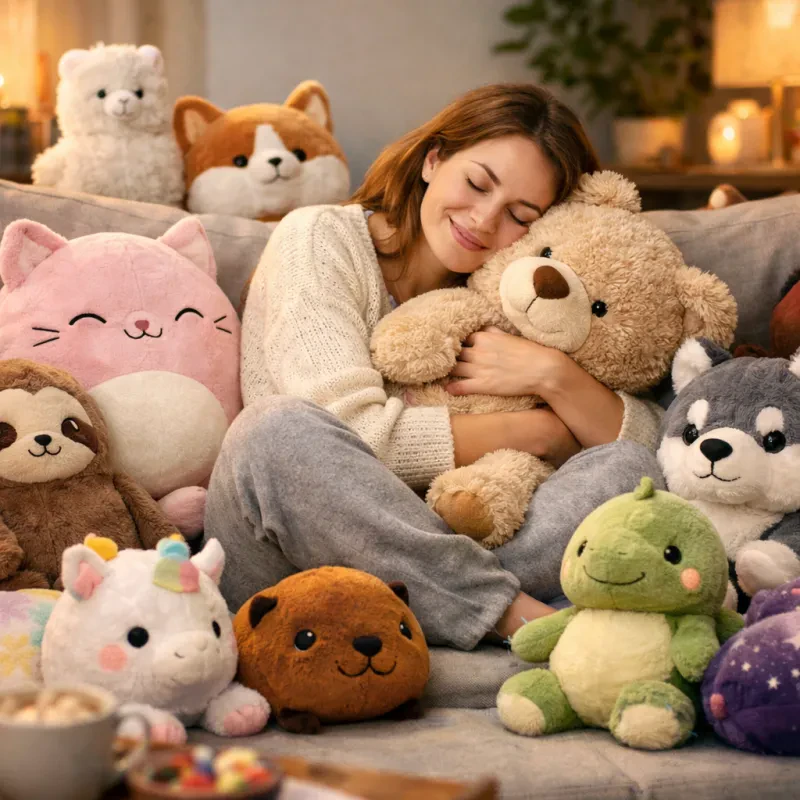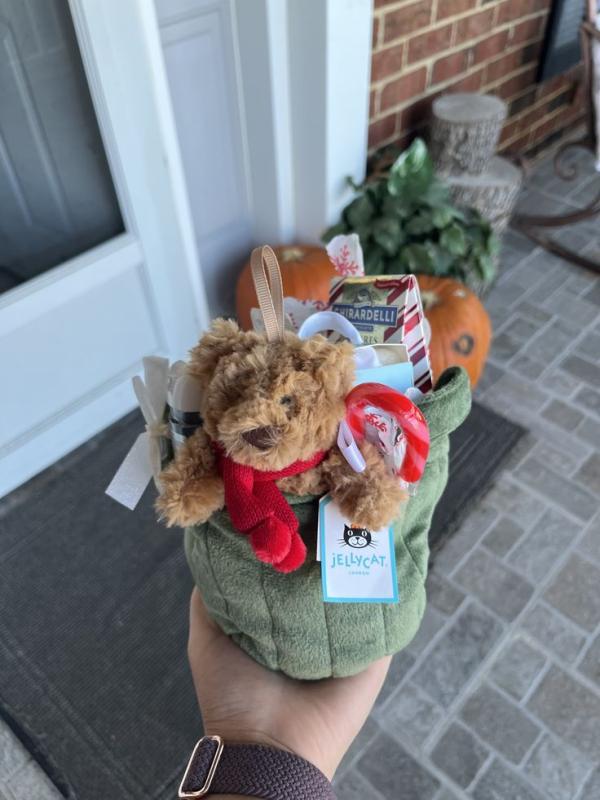Most of us remember clinging to our favorite teddy bear or stuffed animal as children. What will surprise you is how many people never broke the habit. Plushies nowadays are making their way into the life of teenagers, college students, and even adults who look at them as being a part of their daily self-care routine.
Far from childish, stuffed animals have a scientifically proven capacity to comfort, reduce stress, and provide emotional support, no matter our age [1][2]. Science now also explains why cuddling with a plush toy is so reassuring and why its therapeutic effects extend well into adulthood.
Plushies as Comfort Objects
The idea of a "comfort object" is not new. In the 1950s, pediatrician and psychoanalyst D. W. Winnicott discussed transitional objects suhs as stuffed animals or blankets that children turn to as they begin to separate from their parents [3]. Transitional objects act as middle ground between dependency and independence, giving a sense of security while children move through stressful transitions.
This use does not necessarily come to an end when childhood does. Grown-ups keep their childhood teddy bears or buy them fresh to help them with worry, sorrow, or just the everyday struggle. Recent studies show that nearly half of adults continue to have a stuffed animal, proof that these cuddly companions still bring comfort many years after we are adults [4].
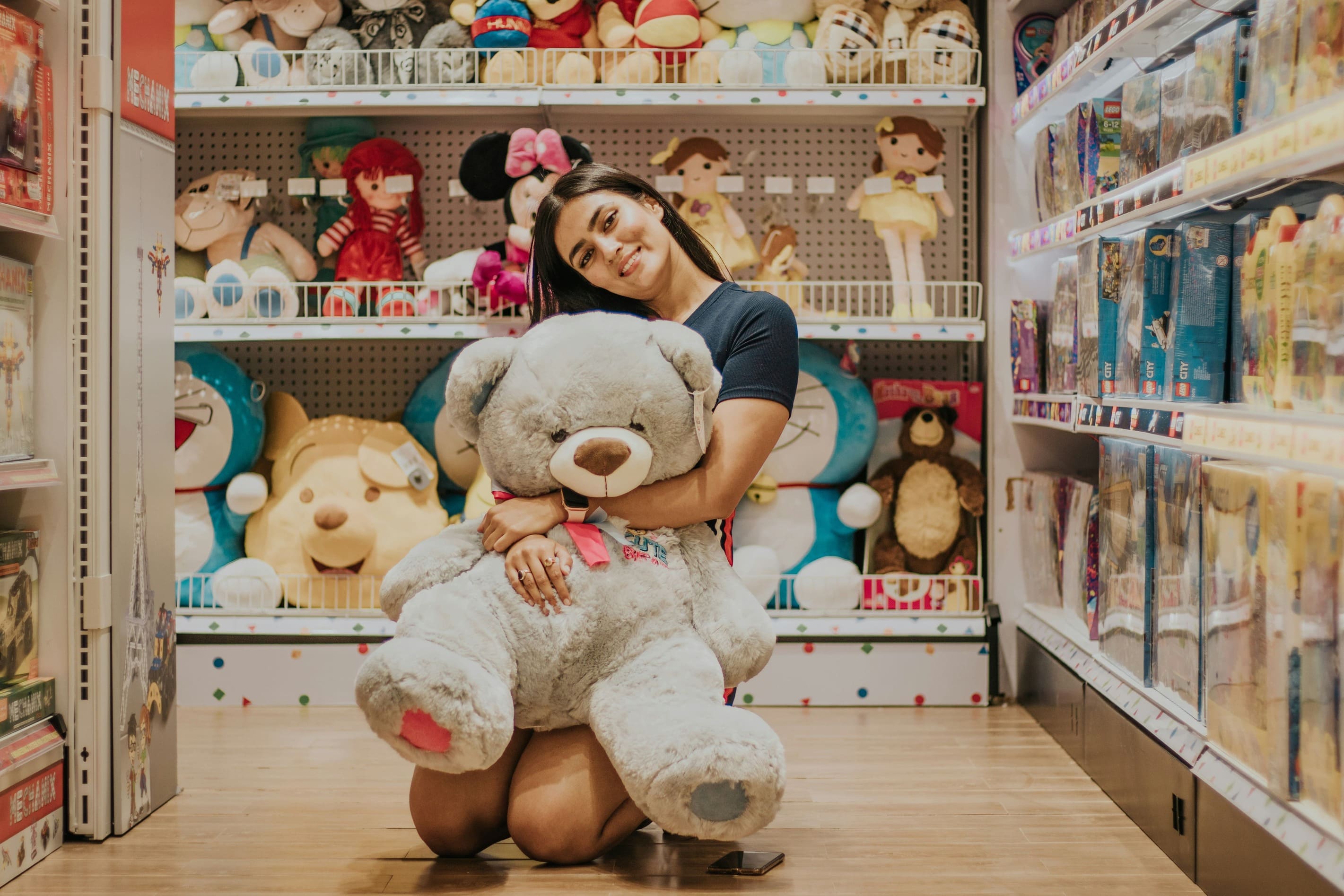
The Science of Comfort
Why, then, is snuggling a stuffed animal so comforting? The answer lies in the way our brains respond to being touched.
When you hug something soft, your body releases oxytocin, also known as the bonding hormone. Oxytocin is linked with feelings of safety, trust, and emotional closeness [5]. That is one reason why a cuddle can feel so reassuring. Alongside this, your stress response is dampened since cortisol levels, the hormone most associated with tension and anxiety, begin to reduce [6]. This process allows the body to relax and the mind to feel more peaceful.
The benefits do not stop there. Physical touch also stimulates the release of dopamine and serotonin, two of the most vital neurotransmitters that regulate mood and create happiness [5]. Higher levels of these chemicals are associated with greater emotional stability, improved sleep, and an enhanced sense of well-being. That explains why hugging a plushie or something cuddly can make you feel more than just comfort in the moment.
Having a snuggly companion by your side can help maintain long-term mental health by lowering your levels of stress, improving your mood, and making you feel more connected to yourself and to your surroundings.
This notion is also supported by psychology research. In his well-known baby monkey experiments, psychologist Harry Harlow demonstrated that the baby monkeys always favored a soft cloth "mother" that provided warmth and affection over a wire "mother" that provided only food [7]. This study shows that emotional comfort is not a luxury but a basic human requirement, seen as important as physical nourishment. The findings highlight how significant the feelings of safety, contact and comfort are to a healthy development. Stuffed toys fulfill that need in a concrete way, offering the same sort of warmth and security as Harlow's monkeys reached out for instinctively.
Stuffed animals therefore remain such powerful comfort toys for children and adults, serving as accessible sources of emotional support in daily life.
Plushies and Mental Health
While plushies can never replace professional therapy, they still play a meaningful role in helping people cope with daily stress and strong emotions. A study from the University of Georgia revealed that many college students turn to stuffed animals during exam week as a convenient and effective way to cope [8]. Hugging a soft toy not only lowered their levels of stress but also put them in a better mood, feeling calmer during one of the most demanding times of the year.
Mental health experts are also fond of the therapeutic value of plushies. They often recommend them as grounding tools for those who are grieving, traumatized, or emotionnally overwhelmed [1]. Holding something soft and safe can provide an individual with the grounding they need in order to become present again when these overwhelming feelings leave them lost.
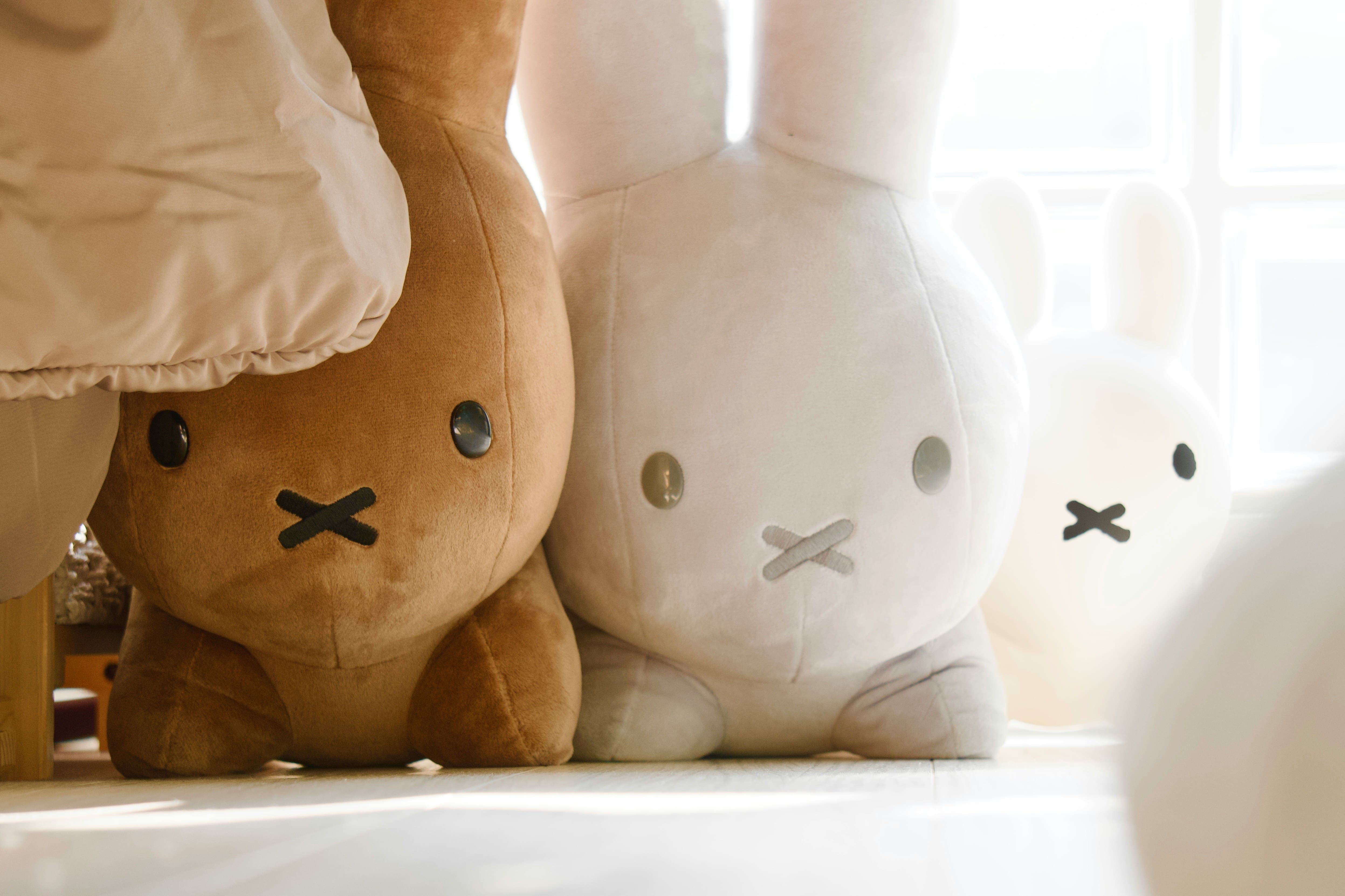
In recent years, plushies have continued to evolve in response to wellness needs. Weighted plush toys mimic the feel of a weighted blanket for calming comfort, and heated plushies provide warmth that brings relaxation [9]. These items combine sensory comfort and physical soothing effects, making plushies highly valuable for stress relief, emotional care, and overall wellness.
The Rise of Adult Self-Care
Plushies are now widely embraced as part of the modern self-care movement, and their use goes far beyond simple childhood nostalgia. For a lot of adults, holding a stuffed animal re-establishes the comfort and security of childhood experience, bringing on a feeling of immediate relaxation. In a world that is otherwise so hurried and frantic, plushies provide the rare opportunity to slow down, disconnect from the screens, and enjoy a moment of tranquility.
Adults now proudly show off their plushie collections on social media like TikTok and Instagram, proving that soft friends are not just for children. This visibility has worked to erase the stigma and has encouraged others to embrace plushies as a valid source of emotional comfort.
Brands such as Warmies now design plush toys with adults in mind as their market [9]. Most of their products incorporate soothing features like lavender scents microwaveable heat inserts, combining sensory comfort and stress relief. These innovations emphasize the ways plushies have evolved into wellness accessories, combining nostalgia with day-to-day self-care benefits that resonate with today's lifestyle.
$29.11
4.13 out of 5 starsWarmies Brown Curly Bear: Microwavable Cozy Plush Toy
Snuggle up with this adorable bear that brings warmth and comfort when you need it most
Product information
Product Review Score
Product links
Stuffed toys: Comfort Without Age Limits
As shown in this article, plushies are far more than just a basic children's toy. They act as emotional support friends that provide comfort, ease stress and give a sense of security during difficult times. By inducing positive feelings and soothing effects, they help with mood control and overall well-being. For some, a cherished childhood teddy bear still brings a sense of comfort and warmth, while others turn to newer models such as heated or weighted plushies that are designed to provide relaxation and self-care. These cuddly companions highlight the universal need for comfort and demonstrate that embracing it is natural and beneficial.
Hugging a plushie does not make you childish. It makes you human.
